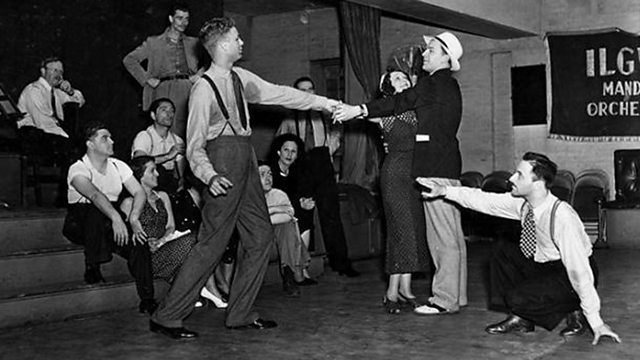Art for the Millions - Staging the New Deal
Uncovering the power and passion of the government funded theater in the USA.
Writer Marybeth Hamilton uncovers the power, passion and craziness of the first and only successful attempt to bring government funded theatre to the whole of the US. In the midst of the Great Depression, Roosevelt's flagship New Deal programme, the W.P.A., took thousands of unemployed artists, writers and performers and put them on the payroll. Art could go to work for Washington and the national good. Democracy and culture would strengthen one another. The Federal Theater Project, under the leadership of Hallie Flanagan, staged the American experience across the nation to some 30 million people.
From Federal work camps to parks, remote towns to great cities, audiences could see anything from vaudeville to Shakespeare, marionettes to Eugene O'Neill, for just 25 cents. Unemployed journalists and writers were put to work on Living Newspapers, fusing documentary and drama to stage contemporary issues and create debate among the audience. Orson Welles and John Houseman brilliantly staged an all black version of Macbeth and Marc Blitzstein's agit-opera The Cradle Will Rock. Across the nation It Can't Happen Here, the Sinclair Lewis story of the fascist overthrow of America by an idiot, was staged simultaneously from coast to coast. But the Federal Theater had created powerful enemies in Congress with mounting inquiries into communist subversion and waste that would bring nearly all the New Deal's cultural programmes to an abrupt halt. Marybeth Hamilton speaks to Tim Robbins, Simon Callow and the 103-year-old veteran of the Federal stage, Norman Lloyd.
(Photo: Rehearsal for The Cradle Will Rock. Credit: US government)
Last on
More episodes
Previous
Broadcasts
- Sat 16 Dec 2017 19:06GMT主播大秀 World Service except East and Southern Africa, News Internet & West and Central Africa
- Sat 16 Dec 2017 20:06GMT主播大秀 World Service East and Southern Africa & West and Central Africa only
- Sun 17 Dec 2017 12:06GMT主播大秀 World Service except News Internet

